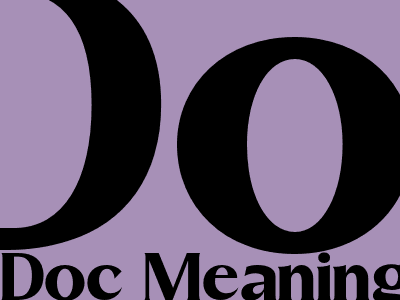
Decoding the Ambiguity of "Doc"
Delving into the Etymology of a Versatile Term
The term "doc" holds a multifaceted meaning, encompassing various interpretations depending on the context. Its origins can be traced back to the Latin word "docere," meaning "to teach" or "to instruct." From this root, the term evolved into the Middle English "doctour," referring to an academic expert in a particular field.
The Significance of Context
In contemporary usage, "doc" primarily denotes a medical doctor, an individual who has attained a doctorate degree in medicine. This usage is particularly prevalent in the United States, where "doc" has become a colloquial term for a physician.
However, the term extends beyond the medical realm. In academic settings, "doc" is frequently employed as a shorthand for "doctorate," indicating an individual who has completed the highest level of academic achievement in a specific discipline.
Exploring Variations and Abbreviations
The informal nature of "doc" has led to several variations and abbreviations. "Docs" is commonly used as the plural form, while "docc" or "d0c" are often employed in online communication to save space and convey informality.
Additional Meanings and Interpretations
Beyond its traditional applications, "doc" has also acquired additional meanings. In computing, "doc" can refer to a document file, particularly one created using Microsoft Word. Additionally, "doc" is sometimes used as a nickname or term of endearment, especially for individuals named "Doctor" or "Dominic."
Conclusion
The versatility of "doc" is evident in its diverse applications across different contexts. Its primary meaning as a medical doctor remains prevalent, but its usage extends to academia, computing, and even informal settings. Understanding the nuances of "doc" is essential for effective communication and avoiding misunderstandings.